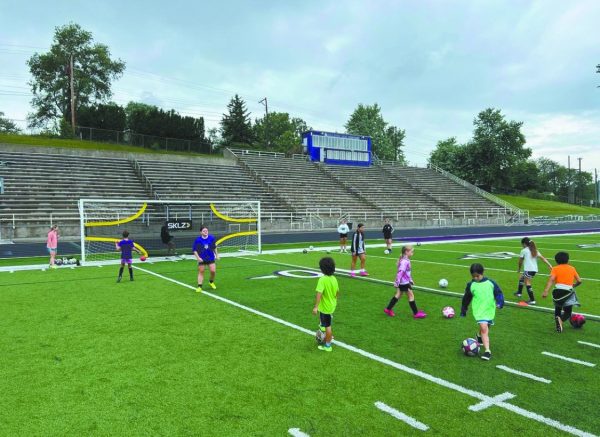“Don’t have sex! Or else you’ll get pregnant. Or get an STD. Or an STI. Or all three! And probably die!” Although paraphrased, that is the general message that I got from the brief sex education I received in health class. According to the BPS Course Guide, health class aims to “help students grow personally and socially by developing skills that will contribute to a strong and healthy life of positive choices.” In terms of sexual education in BPS, topics discussed include “STI’s and abstinence”. This focus on exclusively abstinence left me frustrated. I wasn’t upset that the curriculum was encouraging students to abstain from sex. I was upset at the complete lack of information on how to practice safe sex. The reality is: teens are going to learn about sex. Do we want them to learn from sketchy internet sources or friends of friends? Or do we want them to learn from trusted educators in an age-appropriate setting? Assuming that parents will have the conversation ignores the experiences of students who have difficult home lives or non-accepting parents. Sex education in schools must be comprehensive, scientifically accurate, and emotionally conscious to address the diverse experiences of young adults.
Firstly, abstinence-only education, which discourages sexual intercourse until marriage, has been proven to be ineffective. The American Association of Pediatrics reports that states that emphasize abstinence-only education actually have higher rates of teen pregnancy. In contrast, a 2012 study by Chin et al. found that comprehensive sex education leads to reduced sexual activity and a reduced number of sexual partners in high schoolers. It’s true that abstaining from sex is the only 100% effective way to prevent pregnancy and sexually transmitted infections. However, exclusively focusing on abstinence is clearly ineffective. Rather, presenting teens with medically accurate and unbiased information about their bodies allows them to make the choices that are best for them.
It’s important to recognize that comprehensive sex education isn’t just about condoms and STIs. It should also include information about puberty and anatomy, and teach younger students that bodily developments such as menstruation, a deepening voice, or underarm hair are completely normal. Additionally, students must learn about healthy relationships and consent. This can begin at a young age, with children learning basic ideas about bodies, emotions, and consent in an age-appropriate manner. The WHO reports that teaching about consent reduces the risk of sexual violence and abuse. This is imperative, as the Centers for Disease Control found that 1 in every 12 high school students experience dating violence. Comprehensive sex education can teach students what a healthy relationship looks like and where to turn if you feel violated or unsafe. This is necessary to prevent students from committing or being victims of dating violence.
Sex education programs must also be respectful of all identities. According to the American Academy of Pediatrics, abstinence-only programs often enforce harmful gender stereotypes and fail to address the diverse needs of LGBTQ+ students. Affirming students’ identities in the classroom is crucial, as many LGBTQ+ youth face discrimination in their schools, communities, and even their own homes. A 2021 study published in the Journal of Adolescent Health found that sex education that includes “appreciation of gender and sexual diversity” leads to decreased homophobic bullying in school.. Improving our sex education to be inclusive of all identities can reduce the marginalization that LGBTQ+ youth experience on a day-to-day basis. We can teach students to simply respect others, regardless of differences.
The reality is, we need more inclusive and comprehensive sex education. Abstinence-only education is ineffective and ignores the realities of students’ experiences. As Laura Lindberg, the co-author of a report on abstinence-only education, stated in an interview with NPR: “We tell people not to drink and drive. We don’t teach them not to drive… We would never withhold information about seat belts because they wouldn’t know how to protect themselves.” Comprehensive sex education would not only reduce students’ sexual activity, but it would also encourage them to be safe and healthy in all aspects of their life. Teaching young people about safe sex, healthy relationships, and consent is crucial as they develop into adulthood.
![Ensuring safety. If given a reason, the school resource officer reserves the right to search a student’s belongings. As a safety precaution, SROs wear gloves when searching a student’s backpack. “So [for a] backpack search, if we have to do a backpack search, we have to have a few things. We have to have existent circumstances, probable cause, or we have to have reasonable articulable suspicion which we would request from the school administrator or teacher to search a backpack,” School Resource Officer Jonathan Hobbs said.](https://thechieftainspear.org/wp-content/uploads/2024/05/hobbs-photo-Medium-450x600.jpeg)









